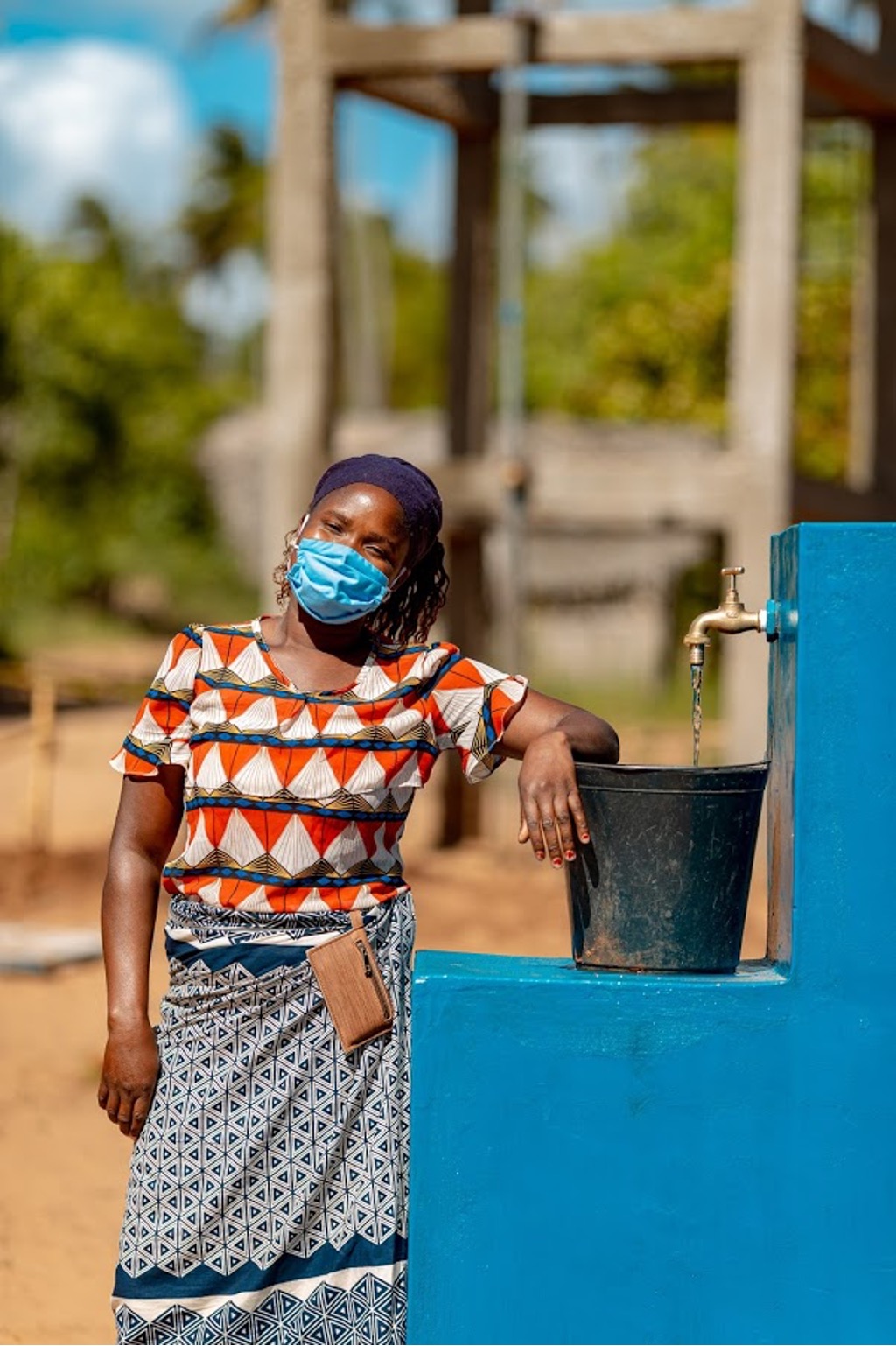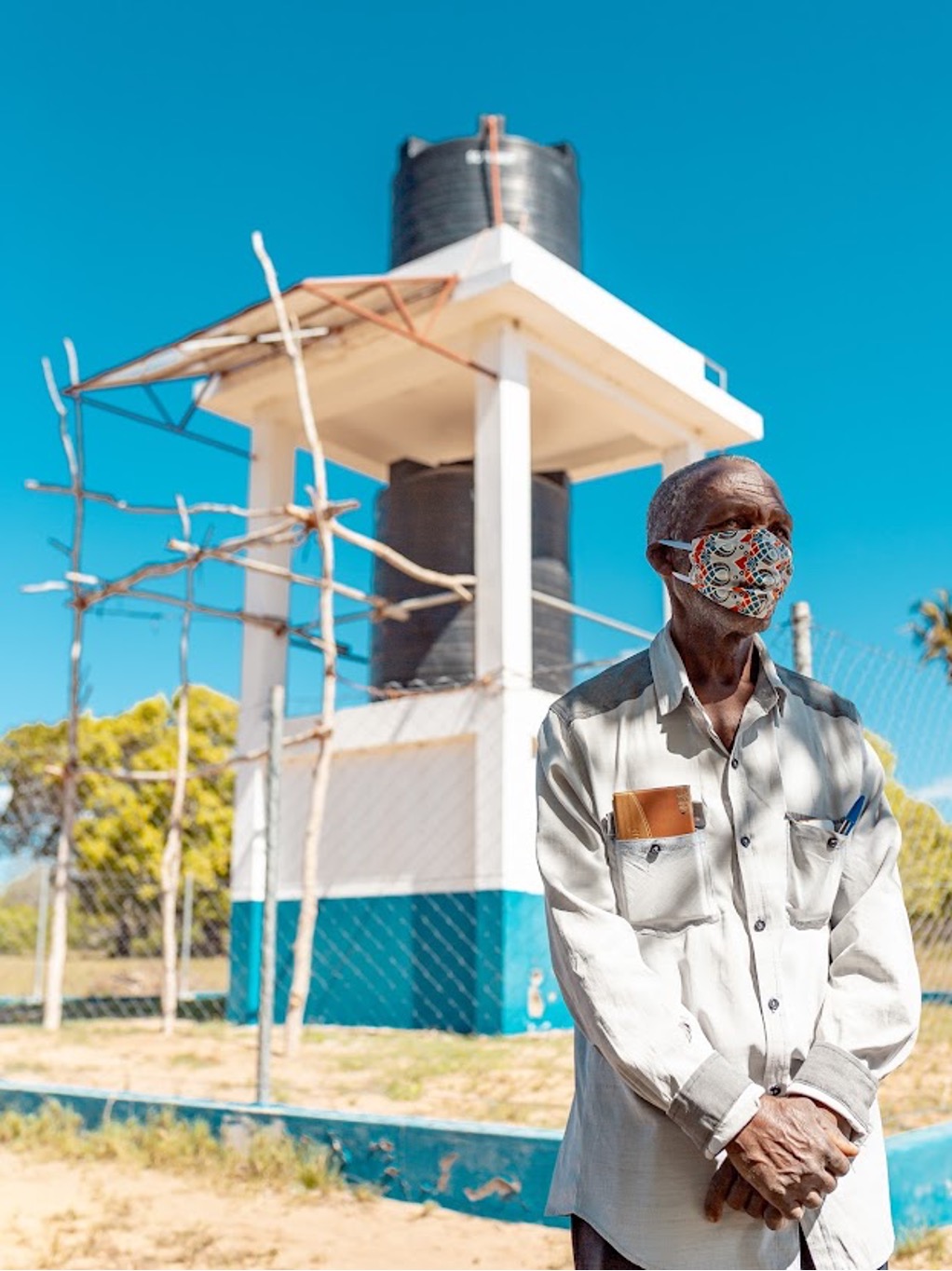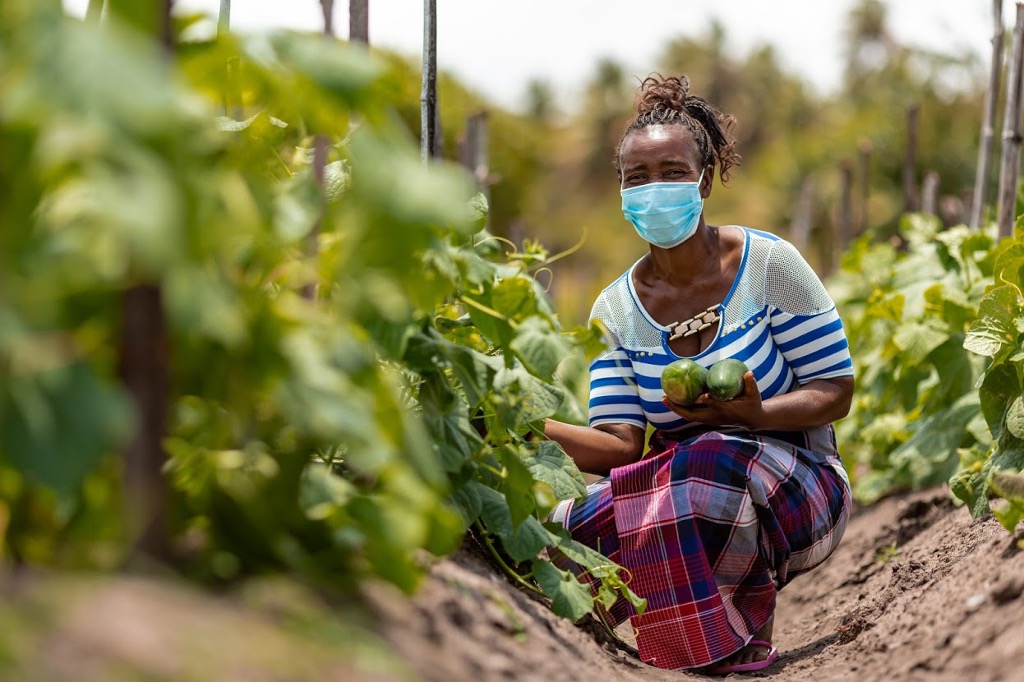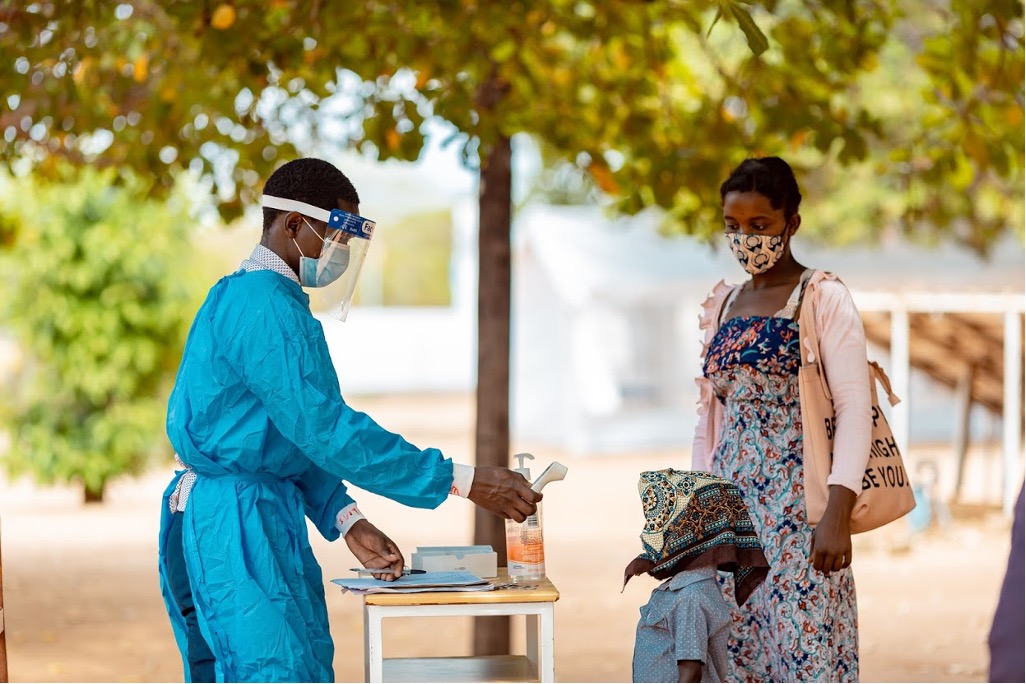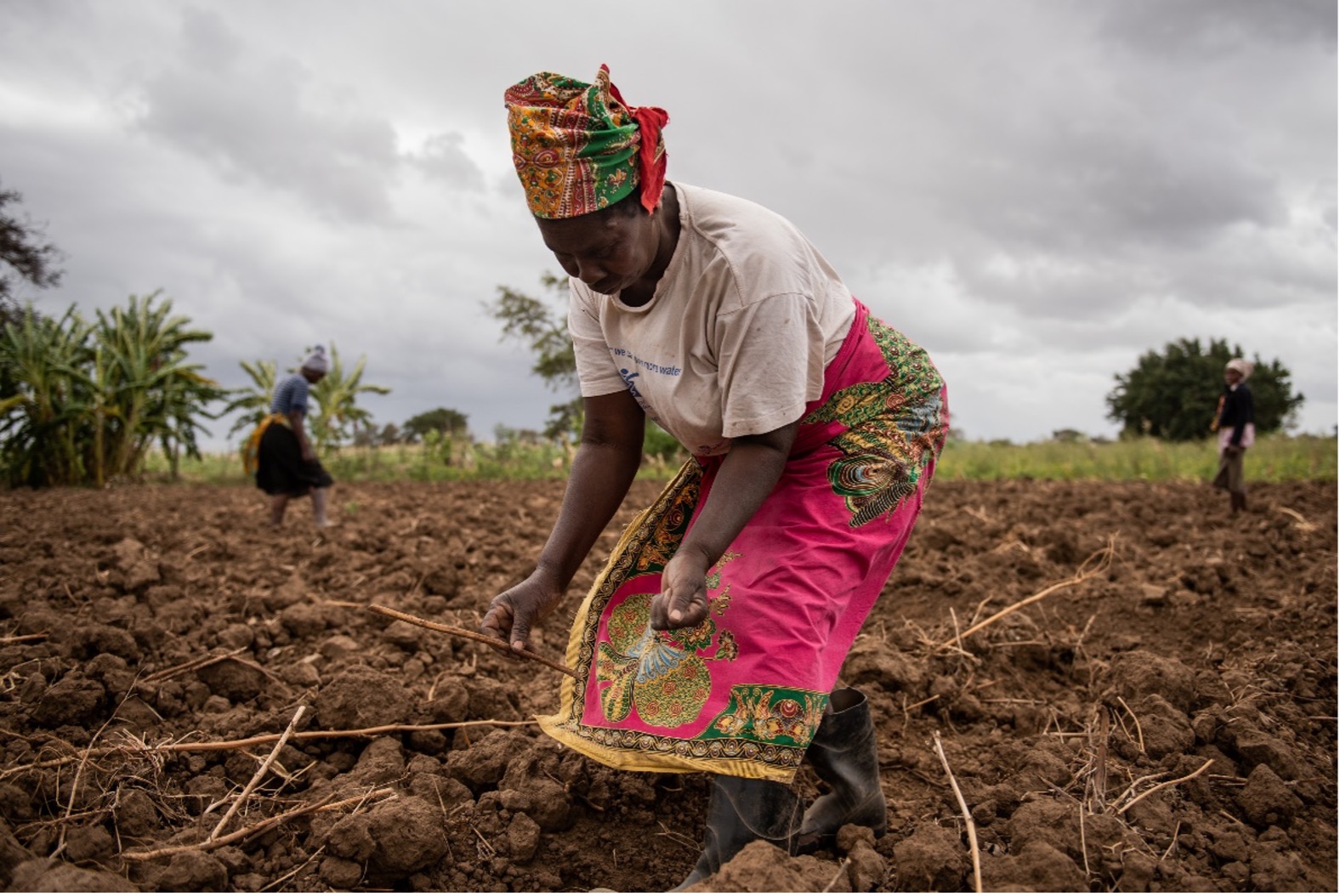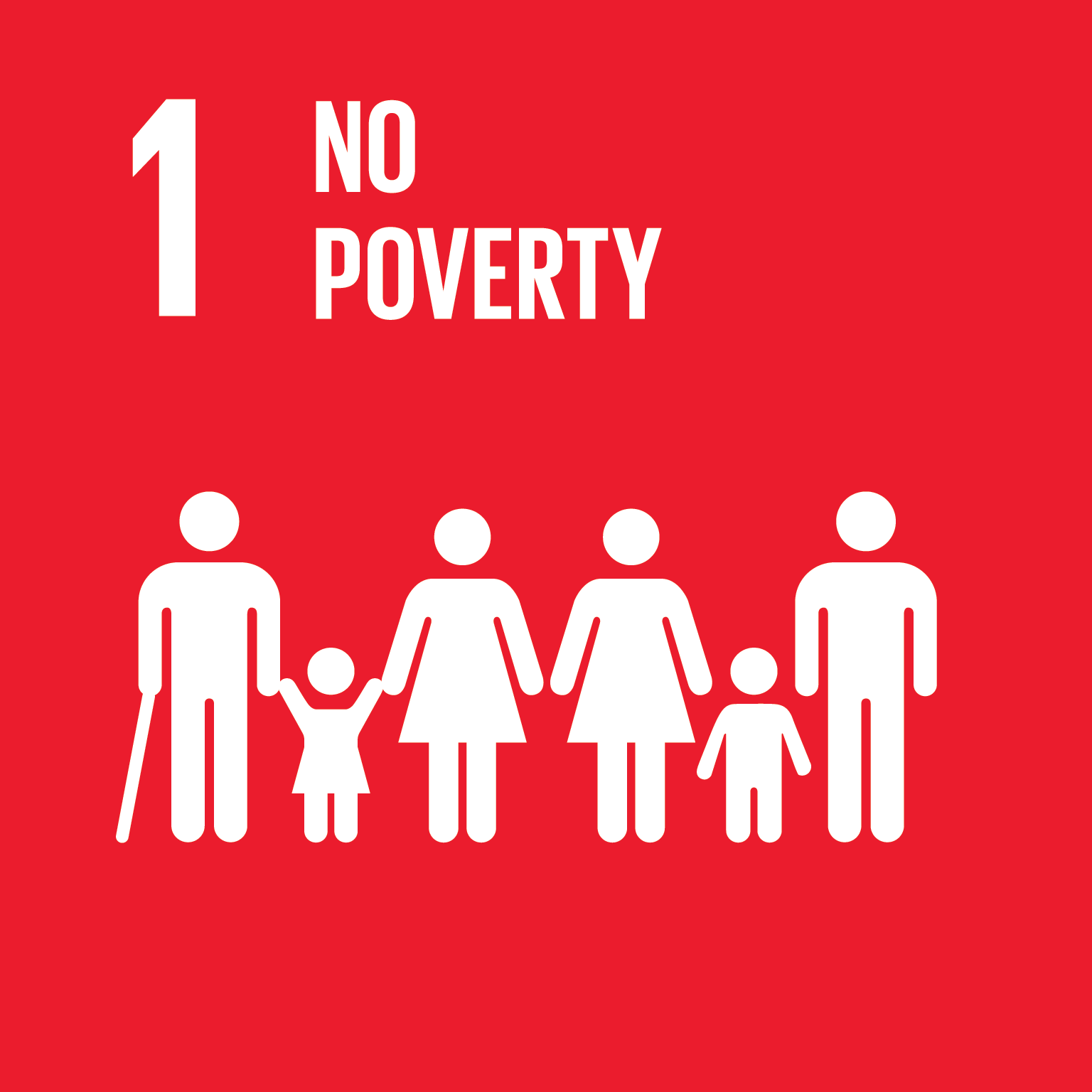 Support to Local Governments to Strengthen their Response to the COVID-19 Pandemic and Protect Rural Livelihoods
Scaling up locally-led actions and securing rural livelihoods in Mozambique in response to the COVID-19 pandemic
Support to Local Governments to Strengthen their Response to the COVID-19 Pandemic and Protect Rural Livelihoods
Scaling up locally-led actions and securing rural livelihoods in Mozambique in response to the COVID-19 pandemic

Challenges
In 2020, due to the impacts of COVID-19, more than 71 million people worldwide were pushed into extreme poverty, causing the first rise in global poverty in decades. Since March 2020, Mozambique has faced a steady increase in cases and lives lost to the virus. Rural livelihoods rely on natural resources for food production and income generation, sustained by the local provision of public services. In Mozambique, livelihoods are already tested by severe climatic and environmental changes. The COVID-19 pandemic, with its associated economic and social lockdowns, has only exacerbated this further, triggering higher poverty and hunger rates, as well as a reduction in the ability to recuperate.
Local governments in Mozambique are ideally placed, due to their proximity to their citizens, to meet local and socio-economic needs. Through further community consultations, urgency was voiced for local action to go beyond mere preventive, health and safety measures, but to also protect rural livelihoods in climate-affected areas from COVID-19’s impact. However, local governments have limited fiscal tools and capabilities to generate their own financing, further exacerbated by the pandemic.
Towards a Solution
Led by the Government of Mozambique, since 2014 the United Nations Capital Development Fund (UNCDF) has supported local governments through the Local Climate Adaptive Living Facility (LoCAL). The initiative’s methodology is designed to increase local governments’ access, strengthen their accountability and effective use of climate funding at the local level. It promotes the integration of climate change adaptation in local government planning and budgeting systems in a community-participatory, socially-inclusive and gender-sensitive manner. Additionally, through the provision of Performance-Based Climate Resilience Grants (PBCRGs) it motivates local governments to implement good governance, enhancing performance and capacity, thus guaranteeing the programming and verification of adaptation investments. LoCAL contributes to the achievement of the Paris Agreement and the Sustainable Development Goals, particularly SDGs 1 (No Poverty), 11 (Sustainable Cities and Communities) and 13 (Climate Action). The initiative also contributes to IPoA Priority Areas 6 and 7.
Learning from the LoCAL experiences in pilot countries (e.g., Cambodia, Bhutan, and Benin) and tailoring them to local needs, LoCAL was launched in Mozambique with support from the government of Belgium, to complement the Belgian Fund for Food Security (BFFS) Programme. By working in partnership in the Gaza Province, LoCAL and BFFS were able to address the realities of both climate change and food insecurity, strengthening the resilience of communities in reducing their vulnerability to climate-related, economic and social shocks. Currently, LoCAL Mozambique has been scaled up to five provinces with donor support from the Government of Belgium, the Government of Sweden, the Government of Switzerland, the Catalan Agency for Development Cooperation, and the European Union (EU).
While LoCAL Mozambique originally transferred financial resources to the provincial level to be managed on behalf of the districts, once these local governments meet the required minimum conditions of accountability supported by LoCAL capacity building, funds are directly transferred to them through the national public financial management system. Additionally, the process of prioritizing and selecting adaptation investments is carried-out in joint dialogue between local governments and communities, thus giving voice to all strata and needs of communities, ensuring local ownership and inclusion.
It is through LoCAL’s programmatic framework of contextualizing local capacities and response that it can also be tailored to address other local challenges, one being most relevant today: COVID-19 adaptation in climate affected districts.
With an US$ 1 million top-up from the Government of Sweden, in 2020, together with flexible national procurement regulations, local governments - applying LoCAL’s methodology - were able to provide quality public services and relief measures to their citizens, in 13 districts in the Gaza and Inhambane provinces, during the pandemic. Through increased, quick access to adaptation financing, the hardest hit sectors were supported, both securing and building up the resilience of local economies and livelihoods, and preventing the most vulnerable from being disproportionately affected. The objective was to reach one million beneficiaries. Local small-scale actions provided (1) community COVID-19 awareness raising and mobilization; (2) COVID-19 protection equipment and isolation centres; (3) reliable safe multifunctional water sources, hygiene and cleaning products as well as infrastructures; (4) sewing machines, essential agricultural and farming tools and products (solar-run irrigation systems, horticultural production, seeds, small livestock); supporting (vulnerable) families in need. All actions were prioritized, decided on and implemented by local governments in consultation with communities.
Quick wins have been achieved through this flexible approach of LoCAL to the pandemic, proving its adaptable and replicable nature to different local contexts. Given LoCAL’s global presence in 27 countries, the Mozambique experience is a possible COVID-19 response and recovery model for other least developed countries to support local governments in planning and budgeting for socio-economic and resilient development. The strong capacity development and locally-rooted ownership as well as central government and continued donor support for the methodology ensures the long-term sustainability of LoCAL, allowing it to shape and strengthen through different - and complementary - experiences in-country and worldwide.
Contact Information
Countries involved
Supported by
Implementing Entities
Project Status
Project Period
URL of the practice
Primary SDG
Secondary SDGs
Similar Solutions
| NAME OF SOLUTION | Countries | SDG | Project Status | |
|---|---|---|---|---|
Accelerating the Transformational Shift to a Low-Carbon Economy in Mauritius Towards supplying 35 percent of the country’s energy needs with renewables by 2025 |
Mozambique, Sweden | 05 - Gender Equality 09 - Industry, Innovation and Infrastructure 13 - Climate Action | Ongoing | View Details |
Accelerator Labs Network Following collective intelligence methods to address emerging sustainability challenges and the growing demand for local solutions |
Mozambique, Sweden | 08 - Decent Work and Economic Growth 13 - Climate Action | Ongoing | View Details |
Adaptation for Smallholder Agriculture Programme Establishing better working conditions for smallholder farmers through the use of good practices and new technologies |
Mozambique, Sweden | 08 - Decent Work and Economic Growth 11 - Sustainable Cities and Communities 13 - Climate Action 15 - Life on Land | Ongoing | View Details |
Adaptation of 3PA to Urban and Displacement Settings Using South-South and Triangular Cooperation in World Food Programme Three-Pronged Approach capacity strengthening through cross-learning initiatives |
Mozambique, Sweden | 02 - Zero Hunger | Completed | View Details |
ADAPT PLAN in Malawi |
Mozambique, Sweden | 01 - No Poverty 05 - Gender Equality 11 - Sustainable Cities and Communities | Ongoing | View Details |
